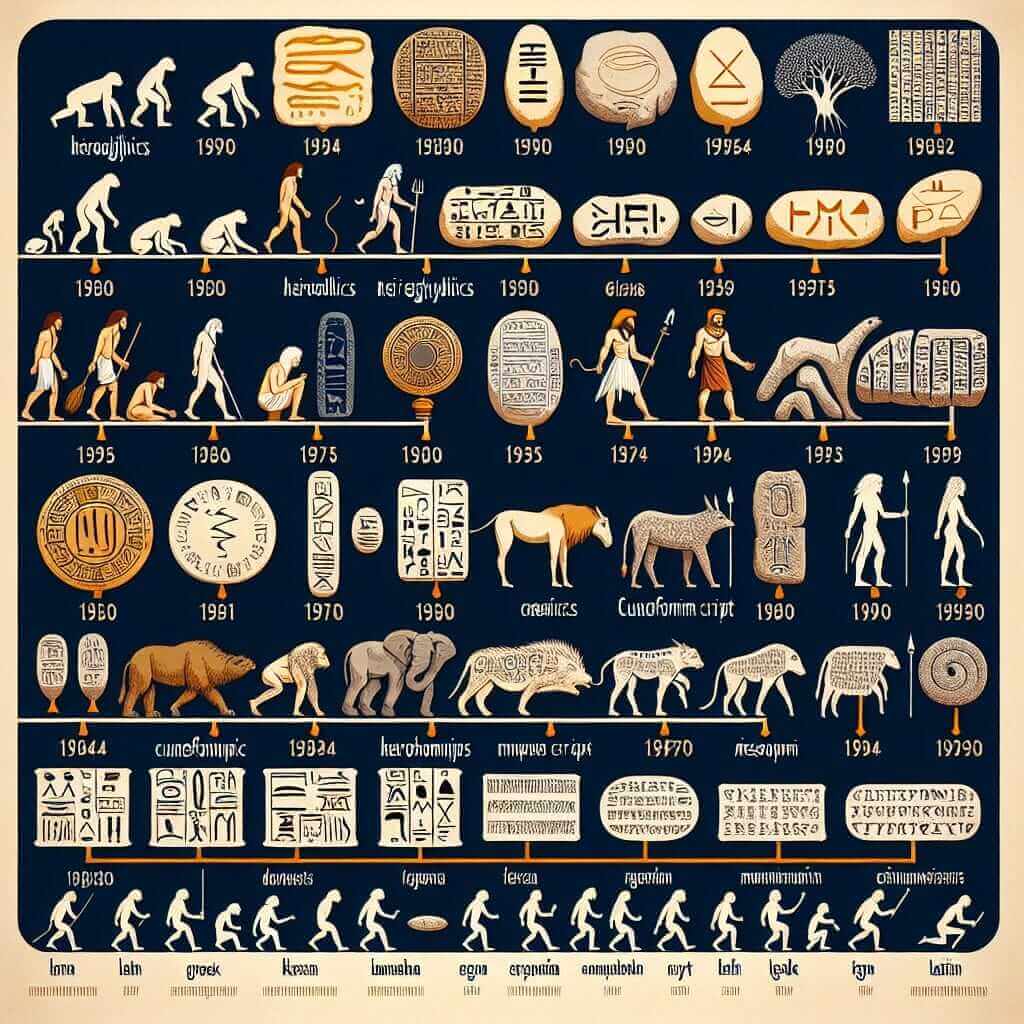As an IELTS instructor with over two decades of experience, I often encounter students perplexed by the “historical” or “developmental” essay topics in the IELTS Writing Task 2. One such topic that frequently arises is “How did writing begin?” While seemingly daunting, understanding the essence of this task and approaching it strategically can significantly bolster your IELTS writing score.
Deciphering the “How Did Writing Begin?” IELTS Question
At its core, the “How did writing begin?” IELTS question assesses your ability to:
- Develop a coherent and logical argument: You need to present a clear and organized explanation of the origins and evolution of writing.
- Showcase your vocabulary and grammar: Utilize a wide range of sophisticated vocabulary related to history, communication, and societal development, while maintaining grammatical accuracy.
- Demonstrate critical thinking: Analyze different stages of writing’s development and potentially draw parallels to its impact on communication today.
Constructing Your Response
1. Brainstorming and Planning
Before you start writing, take a few minutes to brainstorm:
- Key historical points: Recall what you know about the development of writing systems. Think about cave paintings, pictograms, cuneiform, hieroglyphs, and the alphabet.
- Timeline: Roughly outline a chronological sequence of these developments.
- Impact: Consider the impact of each stage on communication and society.
2. Crafting a Strong Introduction
- Start with a hook: Engage the reader with a thought-provoking question or a general statement about the significance of writing. For example: “From the earliest cave paintings to the digital words we consume daily, writing has underpinned human communication and progress.”
- Thesis Statement: Clearly state your main argument. For example: “The development of writing was a gradual process, moving from simple pictorial representations to complex systems of symbols, ultimately revolutionizing human interaction and knowledge sharing.”
3. Developing Supporting Paragraphs
Organize your body paragraphs chronologically, each focusing on a specific stage:
- Paragraph 1: Discuss the earliest forms of writing, such as cave paintings and pictograms. Explain their purpose and limitations.
- Paragraph 2: Introduce more complex systems like cuneiform and hieroglyphs. Highlight their evolution and impact on record-keeping and communication.
- Paragraph 3: Explain the emergence of the alphabet and its advantages over previous writing systems. Emphasize its role in democratizing literacy and knowledge.
- Paragraph 4: (Optional) Briefly connect historical developments to the importance of writing in the modern world.
Example:
“The invention of the alphabet by the Phoenicians marked a pivotal moment in the history of writing. Unlike earlier systems that relied on hundreds of complex symbols, the alphabet used a limited set of characters representing spoken sounds. This revolutionary approach made writing easier to learn and use, facilitating the spread of literacy beyond the elite classes.”

4. Conclusion
- Summarize your main points: Briefly restate the key stages in the development of writing.
- Concluding thought: End with a thought-provoking statement about the enduring impact of writing on human civilization.
Example:
“From its rudimentary beginnings in prehistoric caves to its digital ubiquity today, writing’s evolution reflects humanity’s relentless pursuit of effective communication. As we continue to shape and be shaped by the written word, one thing remains certain: the ability to record and convey our thoughts through writing is fundamental to the human experience.”
Tips for Success
- Vocabulary is Key: Use a variety of vocabulary related to history, development, communication, and society.
- Grammar and Structure: Ensure your writing is grammatically accurate with a variety of sentence structures.
- Conciseness: Be mindful of the word count. Focus on conveying your ideas clearly and concisely.
- Practice Makes Perfect: The more you practice writing essays on different IELTS topics, the more confident and fluent you will become.
Remember, the “How did writing begin?” IELTS question is not about showcasing exhaustive historical knowledge. It’s about demonstrating your ability to structure a coherent argument, utilize relevant vocabulary, and communicate your ideas effectively. By understanding the task requirements and employing these strategies, you can confidently approach this essay topic and boost your overall IELTS score.